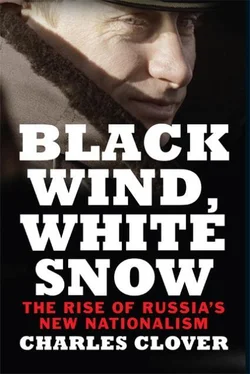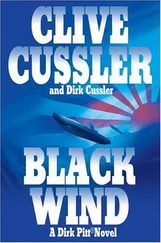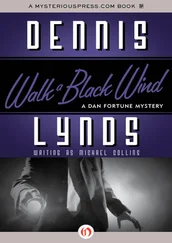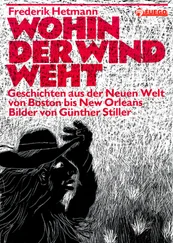No one, of course, was particularly shocked by the revelation. Putin is certainly not the first head of state to lie publicly about a military adventure. But his urge to come clean is curious and has few precedents. So is the public reaction: between 15 March and 22 March 2015 (i.e. the week in which Putin’s comments were aired), polling by the Moscow-based Public Opinion Foundation showed that the number of Russians who said they had come to trust Putin more in the past month increased from 42 per cent to 44 per cent. 17
It is certainly not obvious why it actually buttresses Putin’s credibility to boast about lying, except in the hyperreal simulacrum of Russian politics: to borrow a term from Hegel, many Russians now live in a verkehrte Welt , an ‘upside-down world’, where black is white and up is down. In this world, Ukrainian fighter planes shot down Malaysian airliner MH17 over Donetsk, Russian soldiers are ‘on vacation’ in eastern Ukraine, and Kiev is in the grip of a fascist pro-NATO junta.
Putin has correctly surmised that lies unite rather than divide Russia’s political class. The greater and more obvious the lie, the more his subjects demonstrate their loyalty by accepting it, and the more they participate in the great sacral mystery of Kremlin power by believing it.
Hannah Arendt, in her peerless study The Origins of Totalitarianism , explained the power of the lie, especially the obvious lie, in authoritarian regimes:
One could make people believe the most fantastic statements one day, and trust that if the next day they were given irrefutable proof of their falsehood, they would take refuge in cynicism; instead of deserting the leaders who had lied to them, they would protest that they had known all along that the statement was a lie and would admire the leaders for their superior tactical cleverness.
In this environment – where lies are accepted enthusiastically precisely because they are lies – it is easy to see how the largely discredited theory of Eurasianism could become a central ideological theme, not to mention a strategic doctrine enjoying broad authority among the political elite. In this way, loyalty to a man and a regime has now become supplemented by loyalty to an idea and a set of texts that possibly no one actually believes – not even the authors.
In a remarkable book, Towards a Science of Belief Systems , Oxford professor Edmund Griffiths includes a chapter on ‘beliefs that are not meant to be wholly believed’; these include the category of ‘alternative histories’, such as Atlantis, UFOs or 9/11 ‘Truthers’. These movements, Griffiths argues, are more about punching a hole in establishment consensus than about creating new knowledge. As he puts it:
The specific proposition A is thus supposed to be believed, but not wholly believed: its function is to dynamite the existing consensus, rather than to become the cornerstone of a new consensus that could, in its turn, come to be felt as monolithic and oppressive. 18
Likewise, Eurasianism’s success comes not from winning intellectual arguments but from poking holes in official epistemology, simply by sowing doubt. With some exceptions, few of the works I cite in this book are worth much in scholarly terms. Some are downright fiction; others are disowned by their authors soon after publication. All possess the telltale signs of a native Russian intellectual culture, in which the primary aim is to shock and self-publicize.
Unless one includes the original Eurasianists’ works on linguistic structuralism in the canon of the movement, there is nothing that has survived serious scholarly scrutiny. The first works on Russia’s Mongol inheritance were renounced by the author, Nikolay Trubetskoy, even before publication. Gumilev’s works were popular and fabulously interesting, but hardly withstood peer review. Dugin’s esoteric geopolitics is similarly an intriguing intellectual journey, but more so for its literary qualities (evoking the fictional Eurasia of George Orwell’s Nineteen Eighty-Four ) than for any recognizable objective reality.
Eurasia’s appeal stems not from its accuracy or its explanatory power or its rigour (none of which it has), but from the way in which it exorcizes demons, heals psychic wounds and papers over ruptures in Russia’s crude and disjointed history. Arendt wrote much about how conspiracies and totalizing theories are often preferable to empirical reality, because they offer order, predictability and an explanation for misfortune.
Eurasia was therapy for three generations of men who were buffeted by wars and repressions, and who wanted to find some sense in their suffering, in the brutal caprice of history as it unfolded underneath them. The first generation of writers sought to explain the deus ex machina of the Bolshevik revolution, which disenfranchised them and made them exiles; the second sought to deal with the awful Stalinist reality of the gulag archipelago; and the third faced the challenge of how to rationalize the very surreal collapse of the Soviet Union and the crushing decade of misery brought on by economic and political reform gone wrong. Over the course of a very dramatic century of Russian history, these scribblers dreamt – in exile, in labour camps or in their dissidents’ basements – of a new utopian idea, which put the words in the mouths of a new generation of Kremlin autocrats.
This is a case study in how a fanciful and overly romantic idea, generated from nostalgia and bitterness, travelled from the pen of some cash-strapped academic in 1920s Prague, to a convict writing on paper sacks in a 1950s Siberian prison, to a filthy squat in the Yeltsin era of the 1990s, only to wind up a few short years later as a sort of half-baked and misunderstood Russian national idea, written into national speeches and official policy documents. Throughout the narrative, these stories intersect with the omnipresence of Russia’s secret police, the OGPU, the NKVD, the KGB and their successor agencies of today. Those organizations joined the narrative as provocateurs, infiltrators, tormentors, killers, later as sponsors, and today apparently as consumers and clients of the writings of this group of thinkers.
Eurasianism threatens to become a new totalitarian idea that has come into the world largely due to the efforts of the victims of totalitarianism, who longed to see meaning in their misery. They thus created a theory which better answered the demands of the human mind, which longs for order, laws, consistency and meaning – demands that are at their most acute when reality is at its most random, capricious, wanton and cruel. That theory has been reached for in a moment of crisis by the Kremlin, which suffers from the same paranoia of persecution and trauma of loss as did its authors.
But for all that is wrong with the Eurasianists’ scholarship, they were ultimately right. They predicted that communism would collapse, that the Russian Empire would be torn apart by ethnic nationalism, and that, on the verge of crisis, their ideas would come to power. This book will attempt to explain the parallel universe of Putin and his regime, how it was created, and by whom. Putin may indeed be living in another world, but one day in the not too distant future, we may all be living there, too.
CHAPTER ONE
THE MOST BORING ADVENTURE EVER
Over 100 boats were in the harbour of Sevastopol, on the southern tip of Crimea, on the morning of 14 November 1920, when Prince Nikolay Trubetskoy, a young professor of linguistics from one of the most aristocratic families in Russia, his wife Vera Petrovna, and their two-year-old daughter Elena, clambered aboard the US naval ship Whipple , which, along with the flotilla, had been sent to evacuate some of the thousands of White Russian refugees to Turkey. The previous week, the southern flank of the White forces, commanded by General Petr Wrangel, had collapsed and the Red Army was surging towards their final redoubt on the southern tip of the Crimea.
Читать дальше












